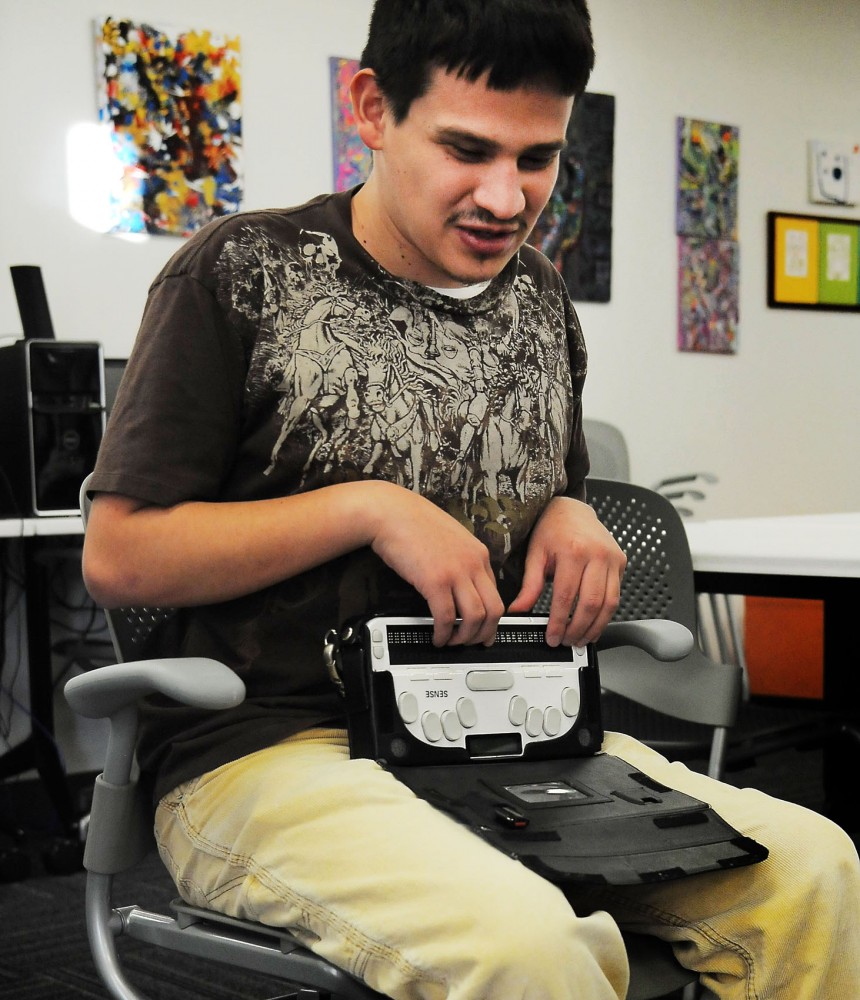Jacob Vasquez couldn’t access parts of his online Spanish homework because his text-to-speech program couldn’t read it.
Eventually, he dropped the class, switched degrees and adapted his schedule so he wouldn’t have to struggle in foreign language courses that required large amounts of online work.
Like Vasquez, who is blind, students with disabilities at the University of Minnesota sometimes struggle with the institution’s websites and programs — potentially risking their academic success. But now, the University is planning to improve access.
With the University’s software upgrade launching in December 2014, administrators are focusing on making technology more accessible to students and employees with disabilities.
The nearly $84 million software upgrade — known as the University’s Enterprise Systems Upgrade Program — includes changes to the current system’s human resources, student service and financial systems.
Software upgrades to improve accessibility for people with disabilities are in the works, but the specifics of the plan are unknown, said Bob Elde, chair of the Upgrade Program’s executive oversight committee and dean of the College of Biological Sciences.
One change includes internally coding University websites to make them readable for people with low
vision who use text-to-speech technology, Elde said.
“We want to be really mindful about making sure the new system, however it ends up being, is accessible in those ways,” said Scott Marshall, associate director for Disability Services.
Disability Services is collaborating with the Office of Information Technology and Upgrade Program developers to ensure the current problems with accessibility aren’t repeated in the system upgrade.
Elde said the current system’s functionality meets federal requirements, but it doesn’t meet the University’s accessibility standards.
“We’re committed to making the University itself … through this upgrade, accessible to all members of the community,” he said.
Similar discussions are happening at universities nationwide. At a December Board of Regents meeting, University officials evaluated recent lawsuits over technology accessibility.
In July, Louisiana Tech University agreed to stop using technology-based learning materials that weren’t accessible to students with disabilities after the institution faced allegations of using an online learning tool inaccessible to a blind student.
Some students with disabilities have faced similar challenges at the University, but officials say the upgrade is a step in the right direction.
Vasquez said he finds it challenging to read some PDF files for class because his screen reader cannot trace the words on the document.
“I’ve found some problems, but I’ve found ways to move around it,” he said.
When there are issues with online assignments, Vasquez uses Disability Services or works with his professor to make accommodations.
He also works at the Disabled Student Cultural Student Center, which provides computer software for students with low vision, hearing impairments and mobility disabilities.
“It’s nice that these things are there,” he said.


